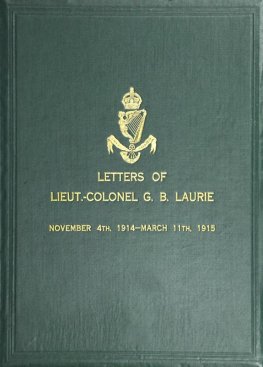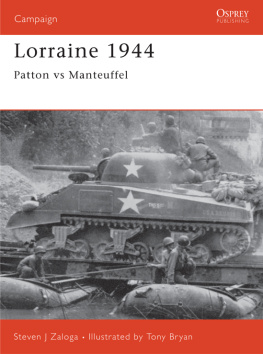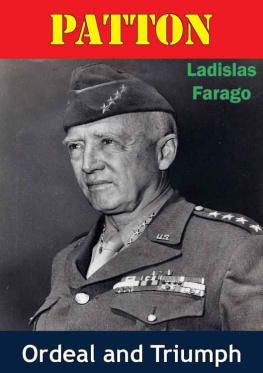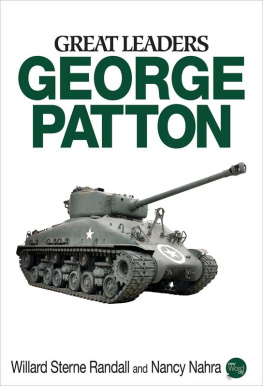1 - The Two Greatest Bluffs in History
F OR MANY MONTHS THROUGH 1942 and 1943 the United States Army Air Forces, together with Britains Royal Air Force, both operating from the British Isles, gained in strength and numbers. Slowly but surely they were knocking the German Luftwaffe out of the skies and dealing body blows to the cities and industries of Germany. Each day we read in the papers of the increasing number of bombers and the damage they were inflicting in round the clock bombing of vital targets. The R.A.F. dropped thousands of tons of bombs by night and our own precision bombers dropped more thousands by day.
Eight hundred planes today, a thousand tomorrow, and still they came. The losses, we were told, were small, and so they were, proportionately. Only 46 planes last night, 52 today; only five or six percent. But we couldnt avoid a quick figuring up; 52 planes gone, each with nine or ten highly trained American or English crews, gone forever. We were told, too, that the destruction they wrought in Germany was terrific, and that one of these days Germany would realize she could stand no more and would capitulate. Magazine articles were written about it, commentators prophesied it and finally books appeared, all to prove that Germany could be defeated by air power alone.
However, the days rolled on into months and the months into two years and still, although obviously badly hurt by the air blows, Germany showed no real sign of quitting. We were forced to fight bitterly for Africa and Sicily and the Allied armies found the going slow in Italy. As time passed and the pounding of Germany from the air continued, the rumor spread that no ground invasion of the Continent would ever be made because it would not be necessary. Air power would do it all. Many believed this at the time. The tremendous flow of men and materiel [materials and equipment] from the United States to the British Isles for many long and tedious months was called The Greatest Bluff in History.
But it wasnt a bluff. June 6, 1944, dawned and the world was electrified by the news that the American First Army and British and Canadian forces had successfully attacked the beaches of Normandy, had landed and had penetrated inland against almost insurmountable obstaclesmines, steel barriers, gun emplacements and every other device that a determined and crafty enemy had been able to construct during the two-year wait.
It was touch-and-go for several days, but finally a substantial sector of the coast was held securely and the Allied world breathed a little easier. The Germans were breathing uneasily. Anxiously their High Command checked the reports from spies in England and from Intelligence Units in Normandy to discover what reserves the Allies had. They knew that one corps of General George S. Patton Jr.s, Third Army, the VIII, had been attached to the First Army for the invasion, but that most of his Third Army still were in England. It was in connection with them that the second of the greatest bluffs in history occurred.
Following image: German troops using captured French tanks (Beutepanzer) in Normandy, 1944.
W E KNEW THAT GENERAL Eisenhower, the Supreme Allied Commander, had the highest esteem for General Patton and his Third Army, and we had heard that the Germans, having felt his quality in Sicily, feared him greatly. But we did not then know why Third Army Headquarters was left near the little town of Knutsford, a few miles south of Manchester and why our troops were scattered through England and Northern Ireland for more than three weeks after the invasion started.
Following image: Eisenhower talks with men of the 502nd Parachute Infantry Regiment, June 5, 1944.
I T WAS PART OF THE cover plan, as it was called. Keeping General Patton and his army where they were, and being sure to let the German agents find out that they were there, constituted such a threat to Germany, and her leaders so feared a direct thrust by the Third Army at some other point, that they kept 17 divisions along the Pas de Calais section of the Channel coast, afraid to use them as reinforcements in Normandy. So realistically was this cover plan carried out that each day ships on the east coast were loaded with troops and just at dusk they moved out into the Channel while it was still light enough for German observation planes to see them. Then, after darkness settled, they moved back again into port and unloaded.
Thus a double purpose was served. Troops and the crews of the ships had valuable training in quick loading and unloading, and a new battle had been won in the war of nerves we were waging against the Germans. They never could be sure whether a new invasion was really underway or whether it was just another bluff. In some cases where reinforcements actually were being sent the First Army in Normandy the ships would move into the Channel just before dark as if heading for a new point of invasion, then under cover of darkness would change course to head for the Normandy beaches. By such deceptive measures, the Germans were fooled completely.
On 28 June, the Third Army finally got orders to move. Secretly we slipped quietly and quickly down into southern England. Third Army Headquarters was set up in Braemer House and several other old manor houses just south of Salisbury. When we left, and for several weeks after we had arrived in France, radios and signal equipment belonging to our headquarters remained in place at Knutsford and were kept in operation exactly as if the full headquarters still was operating there.
In fact, some of the signal equipment was moved closer to the eastern coast of England to throw the Germans further off the trail. The long, cool, clear English summer evenings were ideal for relaxing, but nothing was further from our minds. The very air was tense. We were trained and ready. We knew that the shifting of headquarters presaged action. We tried to relax and keep calm. It was not easy.






















